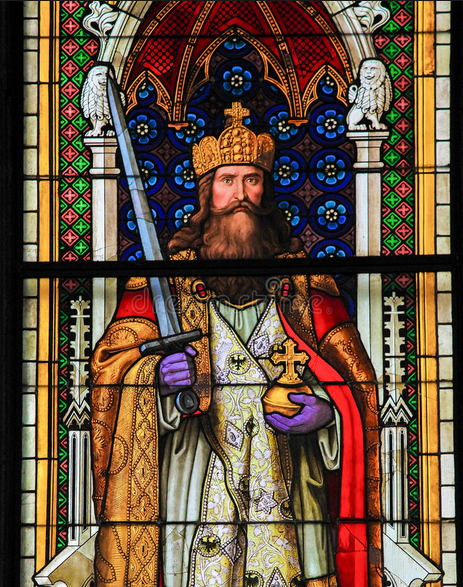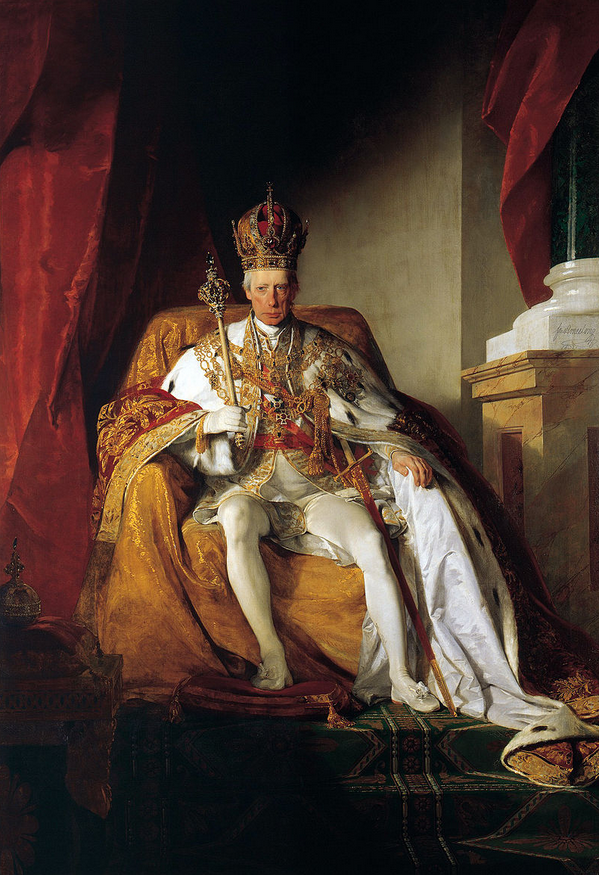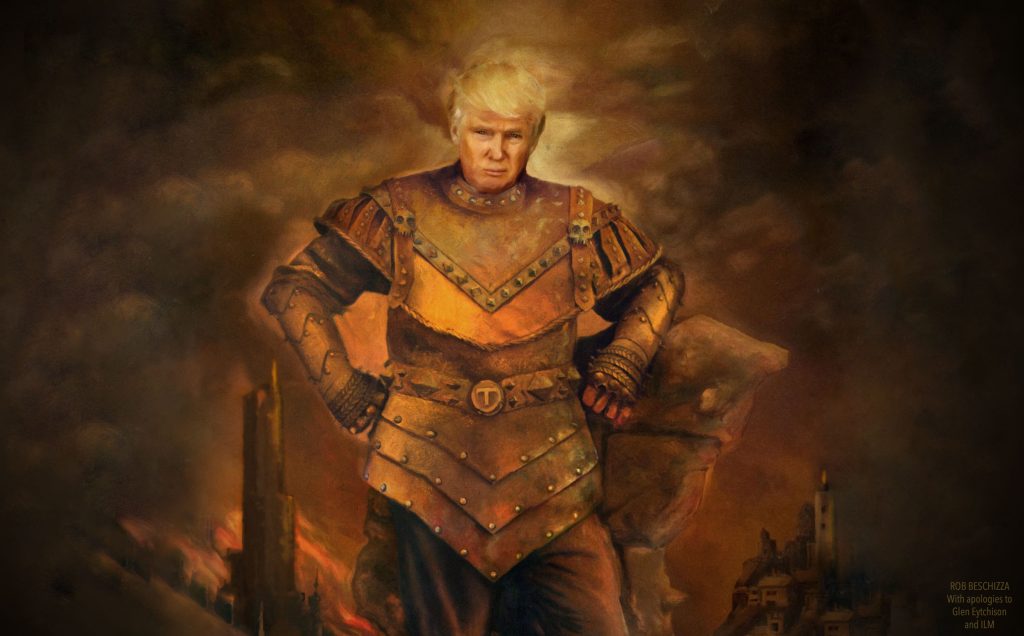Editor’s Note: The following comprises the first chapter of The Holy Roman Empire, by James Bryce (published 1871). All spelling in the original.
CHAPTER I
Introductory
Of those who in August, 1806, read in the English newspapers that the Emperor Francis II had announced to the Diet his resignation of the imperial crown, there were probably few who reflected that the oldest political institution in the world had come to an end. Yet it was so. The Empire which a note issued by a diplomatist on the banks of the Danube extinguished, was the same which the crafty nephew of Julius had won for himself, against the powers of the East, beneath the cliffs of Actium; and which had preserved almost unaltered, through eighteen centuries of time, and through the greatest changes in extent, in power, in character, a title and pretensions from which all meaning had long since departed. Nothing else so directly linked the old world to the new—nothing else displayed so many strange contrasts of the present and the past, and summed up in those contrasts so much of European history. From the days of Constantine till far down into the middle ages it was, conjointly with the Papacy, the recognised centre and head of Christendom, exercising over the minds of men an influence such as its material strength could never have commanded. It is of this influence and of the causes that gave it power rather than of the external history of the Empire, that the following pages are designed to treat. That history is indeed full of interest and brilliance, of grand characters and striking situations. But it is a subject too vast for any single canvas. Without a minuteness of detail sufficient to make its scenes dramatic and give us a lively sympathy with the actors, a narrative history can have little value and still less charm. But to trace with any minuteness the career of the Empire, would be to write the history of Christendom from the fifth century to the twelfth, of Germany and Italy from the twelfth to the nineteenth; while even a narrative of more restricted scope, which should attempt to disengage from a general account of the affairs of those countries the events that properly belong to imperial history, could hardly be compressed within reasonable limits. It is therefore better, declining so great a task, to attempt one simpler and more practicable though not necessarily inferior in interest; to speak less of events than of principles, and endeavour to describe the Empire not as a State but as an Institution, an institution created by and embodying a wonderful system of ideas. In pursuance of such a plan, the forms which the Empire took in the several stages of its growth and decline must be briefly sketched. The characters and acts of the great men who founded, guided, and overthrew it must from time to time be touched upon. But the chief aim of the treatise will be to dwell more fully on the inner nature of the Empire, as the most signal instance of the fusion of Roman and Teutonic elements in modern civilization: to shew how such a combination was possible; how Charles and Otto were led to revive the imperial title in the West; how far during the reigns of their successors it preserved the memory of its origin, and influenced the European commonwealth of nations.

Strictly speaking, it is from the year 800 A.D., when a King of the Franks was crowned Emperor of the Romans by Pope Leo III, that the beginning of the Holy Roman Empire must be dated. But in history there is nothing isolated, and just as to explain a modern Act of Parliament or a modern conveyance of lands we must go back to the feudal customs of the thirteenth century, so among the institutions of the Middle Ages there is scarcely one which can be understood until it is traced up either to classical or to primitive Teutonic antiquity. Such a mode of inquiry is most of all needful in the case of the Holy Empire, itself no more than a tradition, a fancied revival of departed glories. And thus, in order to make it clear out of what elements the imperial system was formed, we might be required to scrutinize the antiquities of the Christian Church; to survey the constitution of Rome in the days when Rome was no more than the first of the Latin cities; nay, to travel back yet further to that Jewish theocratic polity whose influence on the minds of the mediæval priesthood was necessarily so profound. Practically, however, it may suffice to begin by glancing at the condition of the Roman world in the third and fourth centuries of the Christian era. We shall then see the old Empire with its scheme of absolutism fully matured; we shall mark how the new religion, rising in the midst of a hostile power, ends by embracing and transforming it; and we shall be in a position to understand what impression the whole huge fabric of secular and ecclesiastical government which Roman and Christian had piled up made upon the barbarian tribes who pressed into the charmed circle of the ancient civilization.










https://www.audible.com/pd/The-Holy-Roman-Empire-Audiobook/B06XD85Q7Y?qid=1535727058&sr=sr_1_2&ref=a_search_c3_lProduct_1_2&pf_rd_p=e81b7c27-6880-467a-b5a7-13cef5d729fe&pf_rd_r=H82WVGV66EDJR14050MN&
These histories of Empire have become very relevant in the past few years it seems. Look into the key insights as to what caused their downfall, and compare it to the US. The Holy Roman Empire is a famous one that is well documented and interesting to see all of the various iterations and the effects that its policy had on the entire fabric of Europe.
Mr. Mantel, since you seem to be a fount of these wonderful history books that are going to soon drive me into the poorhouse, do you have any recommendations or thoughts about some of those deliciously obscure Empires of Europe* that we don’t get in regular history class? Any general overview you have found on the Early Middle Ages would be great, sir. If not, no sweat, your danged updates just keep sending one down the rabbit holes chasing more things to learn.
*The Bulgarian Empire (who the hell knew they had 2?) or the recent favorite of Samo’s Empire (what the heck is this thing that just sprung up and vanished?).
All of these books are as new to me as they are to you. I’m glad to hear you’re finding them profitable.